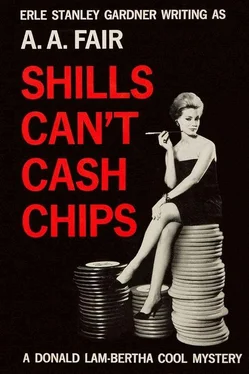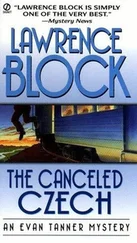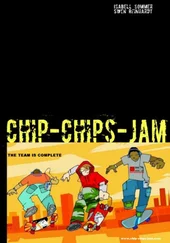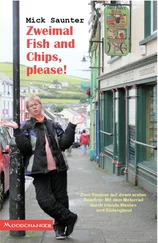“So you saw the accident?”
“That’s right.”
She said, “Mr. Holgate is going to want me to take down what you say in shorthand.”
“Now?” I asked.
“Heavens, no. I’m driving the car now. Later on, when you talk with him.”
“Okay by me.”
“What do you do, Mr. Lam?”
“Almost anything,” I said.
She laughed and said, “I didn’t mean it that way. I mean what’s your occupation?”
“I’m sort of between jobs at the moment.”
“Oh.”
She flicked the directional signal over to right, glided around a right turn on First Street, then speeded up.
She handled the car with such skill that she never seemed to have to use the brakes, simply picking the potential openings in traffic before the opening itself had materialized. Then, by the time she got there, the opening had developed and she was able to glide through with a touch of the throttle.
It was a swell job of driving.
“You’re Mr. Holgate’s secretary?”
“His, and Mr. Maxton’s. It’s a partnership. Real estate, subdivisions.”
“Lots of correspondence?” I asked.
“Correspondence,” she said, “telephone calls, contracts, options, receipts, figuring interest, keeping a tickler system for time payments, running errands, making a sales pitch once in a while.”
“How big’s the subdivision here?” I asked.
“Quite a project,” she said. “Right at the moment it’s taking just about full time for everyone, but that’s the way things go in this business. You’re working at high speed to full capacity one day and the next you’re carrying a fifty per cent overload and the next you’re working twice as hard — and I like it.”
“You seem to be good at it.”
She flashed me a glance and said, “I try to be good at everything I do. I think a girl owes that much to herself — and to her employers. This is a competitive world. You can’t get anywhere if you aren’t good. If you’re going to do anything, do it so you make an outstanding performance. That’s my motto.”
“It’s a pretty good philosophy,” I told her.
“Thanks,” she said. “I like it.”
She swung the wheel to the left, then to the right into a semicircular driveway, came to a stop in front of a typical real estate subdivision building and said, “Here we are.”
A big sign said HOLGATE & MAXTON, SUBDIVIDERS and then underneath in large red letters outlined with a green border: BREEZEMORE TERRACE ESTATES.
I got out of the car and stood for a moment, ostensibly taking in the srroundings with an air of deep approval. Actually I was looking around to see if there was any sign of the person who had been shadowing me.
I couldn’t see anyone.
Down at the place marked Parking there were half a dozen cars and in a couple of places salesmen were showing potential customers blueprints of the subdivision. A couple of hundred yards farther up the hill I could see three or four parties standing on the curving driveways inspecting lots.
The real estate office consisted of typical freakish high-peaked portable structures which had evidently been trucked out to the location separately and then joined together.
Lorraine Robbins got out of the car on the left, walked around to where I was standing, said, “What do you think of it?”
“Sure looks good,” I said. “It’s a beautiful site.”
“The best suburban homesite in the country,” she said. “It’s a shame somebody didn’t open this up sooner because there’s a tremendous population pressure in this area. Believe it or not, the horny-handed son of toil who owned this place had been operating it for fifty years as a dairy.”
“You mean no one approached him to—”
“Sure, they approached him,” she said, “but he wouldn’t listen. He’d got this place as a dairy and, by gum, it was going to keep right on being a dairy! Gosh all tarnation, what do you think I am, anyway?”
Lorraine’s flexible voice changed so that she gave a perfect mimicry of an obstinate old man.
“So,” I said, “he died.”
“He died, and when the heirs saw the appraisal of the land on the basis of inheritance tax, they fell all over themselves getting in touch with Holgate and Maxton. Actually they got in touch with three different subdividers. We made them the best offer.
“Want to go in?”
“It’s so beautiful out here that—”
“Mr. Holgate is expecting you. He’s held his time open.”
I grinned at her and said, “Let’s go.”
She led the way into a reception room where the walls were plastered with photographs and maps. There were half a dozen desks in here and at three of the desks salesmen were evidently closing deals, giving receipts and taking checks.
To the right was an office door with a sign, CHRISTOPHER MAXTON, and to the left one that said CARTER J. HOLGATE.
The back part of the reception room had three typewriter desks, some telephones and filing cases. A good-looking brunette was hammering away on a typewriter. “My assistant,” Lorraine said over her shoulder as we turned toward Holgate’s office.
The assistant looked up with big, romantic dark eyes and smiled directly at us, vivid red lips parting over pearly teeth.
She got up and came toward us.
She was a long-legged, graceful, statuesque girl who could have won first prize in a bathing-beauty contest hands down.
She said, “Is this—”
Lorraine cut her off. “For Mr. Holgate,” she said. “We’re going in.”
She opened the door without knocking and left the brunette standing there looking at me, the smile on her face but her eyes no longer smiling.
Holgate’s office was a big sumptuous room with a long table containing model dwellings, built to scale and placed on lots on a papier-mâché sloping hillside which had been carved with contour roads, covered with green paint to simulate lawns, and had artificial trees growing here and there. The scale houses were on the level lots and could be moved from lot to lot. Their red tile roofs gleamed in artificial sunlight thrown down by a powerful searchlight in the ceiling.
Holgate’s desk was a huge affair covered with various knick-knacks and a few loose papers.
Holgate himself, in his late forties, a big, beaming individual with shrewd gray eyes, a slight drawl and the easy affability of a successful salesman, got up to shake hands.
The guy looked like a tall Texan. He was wearing Pendleton pants and cowboy boots. He must have been well over six feet two and he had the kind of face that would break into a smile at the slightest excuse.
“How are you, Mr. Lam, how are you? It’s certainly nice of you to come out. Please sit down there.” He had a close-clipped iron-gray mustache which gave strength to his mouth.
I shook hands and told him I was glad to have an opportunity to meet him, that he had a nice-looking subdivision and it looked as though it was headed for a big success.
“Of course it is, of course it is,” Holgate said. “We have some of the finest homesites anywhere in this part of the country but we’ve got something more than that, Lam. We have an opportunity for people to make money.
“We got in on this subdivision right, and we’re selling it right. We’re splitting the potential profits with our customers.
“I don’t mind telling you I’m a fast worker. I get into a place, clean it up and get out. I don’t like these subdivisions that drag on and on and maybe a week or two will pass before there’s a sale; sometimes a month — not for me. I buy property right and then I split the potential profits with the customers so that I move the whole subdivision within a short time, then make a blanket deal with some financial company to take over what lots are left and go on to something else.
Читать дальше












